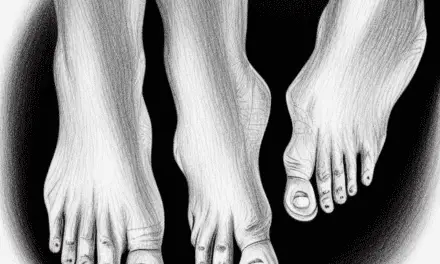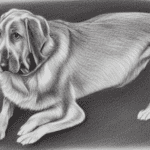If you are concerned about your Chihuahua’s health, there are some common problems to look out for. Read on to learn more about the symptoms, causes, and treatment of these conditions. You can also consult your veterinarian for additional help. Here are the top 5 health problems in Chihuahuas.
Common chihuahua health problems
One of the most common chihuahua health issues is patellar luxation. This condition occurs when the kneecap slips out of its normal place. When it happens, it will cause pain. The problem can be treated with physical therapy or surgery.
Another common chihuahua health problem is hydrocephalus, which causes too much spinal fluid to build up in the brain. This can cause a large head, causing the dog to suffer from seizures. This condition is curable in some cases, but if it occurs in a young puppy, it can be fatal. If the condition is caught early enough, it can be treated with steroids, and in severe cases, it may require a shunt to divert the fluid away from the brain.
Other common chihuahua health issues include glaucoma, which may lead to blindness. The pain caused by this disease is like being pricked in the eye. The first stage of this condition tends to be sudden, but secondary glaucoma can also lead to further infections. Aside from blindness, glaucoma can cause a dog to lose interest in play and lose its appetite.
A dog’s blood sugar levels are also important to check. A dog with low blood sugar is more likely to develop seizures if it does not receive enough nutrition. This condition is more common in puppies than in adults. It can affect the dog’s heart, liver, kidneys, and joints.
An overweight dog cannot participate in regular activities and has trouble breathing. Obesity is not a genetic problem, and it can be prevented and reversed with exercise and diet. The key is to use low-calorie treats and measure meals to prevent overfeeding. Also, Chihuahuas are prone to shivering, which can be caused by stress, cold, or hypoglycemia.
Despite a relatively healthy lifespan, Chihuahuas are susceptible to several health problems, though the majority of them can be prevented or treated with the right care. These problems can lead to decreased life expectancy and decreased quality of life.
Symptoms
Patellar luxation is one of the most common Chihuahua dog health problems. This hereditary condition causes the kneecap to slide out of its groove. While the kneecap will usually return into its proper place by itself, there are times when it needs to be manually realigned. If the problem is severe, corrective surgery may be needed.
The first symptom of this condition is reverse sneezing, a condition in which a Chihuahua coughs and breathes rapidly through its nose. The condition is usually short-lived, lasting about 30 seconds. At your vet’s office, a veterinary team will perform a series of tests to rule out kennel cough, nasal mites, and allergies. In some cases, a vet may prescribe an anti-allergy medication.
A dog can become sick for several reasons, including eating food that didn’t agree with their stomach or accidentally ingesting something that is harmful. Chihuahuas cannot tell if they are sick or not, so it is important to know how to spot the signs. If your pet shows any of these symptoms, you should seek veterinary attention as soon as possible. A veterinary examination will reveal the cause and help you determine the appropriate treatment.
Another common Chihuahua dog health issue is hypoglycemia, or low blood sugar. While it usually does not cause any serious problems, hypoglycemia can be a symptom of a more serious illness. Your veterinarian may recommend medication or suggest a diet change to help your pet cope with its hypoglycemia.
Hypoglycemia symptoms include extreme fatigue, lack of appetite, shivering, and hair loss. If your Chihuahua is exhibiting these symptoms, it is important to seek immediate vet attention. Hypoglycemia can lead to a life-threatening coma if left untreated.
The trachea is an airway that carries breath from the mouth to the lungs. If it collapses, the airway becomes narrowed and difficult for the dog to breathe. The condition can be treated with medications and in severe cases, surgery may be necessary.
Causes
Chihuahuas are notorious for their hyperactive metabolism, which can lead to severe health issues. Because of this, they often shiver excessively, which may signal an underlying problem. The most common health problem among chihuahuas is heart disease. Whether due to poor blood flow or weak heart valves, a heart murmur can be a warning sign. Fortunately, medications can treat heart conditions.
Chihuahuas are often active, but they do need a moderate amount of exercise. While they do not require the same strenuous exercise routines as larger breeds, they do need at least thirty minutes of exercise each day. These walks should be broken up into several, shorter ones. They also need plenty of playtime and training.
Because they have small mouths, Chihuahuas are more susceptible to mouth and teeth issues. These problems can affect the heart, kidneys, and joints. Other potential health problems in Chihuahuas include low blood sugar, or hypoglycemia, which can lead to seizures and coma.
Male Chihuahuas are more likely to experience heart disease than females. Compared to females, male Chihuahuas also have a higher risk of ear infections and heart murmurs. Males are also more likely to exhibit aggression, ear infections, and conjunctivitis.
Patellar luxation is a condition that affects the kneecap. This can affect a dog’s ability to walk. If it occurs during the early childhood years, the patellar may dislocate and cause a limp. In severe cases, corrective surgery may be necessary.
Heart disease is a major cause of death among dogs. Due to the tiny size of these dogs, they are more susceptible to heart disease than other breeds. If the condition progresses, thickened valve leaflets and deformed heart valves can lead to a shortened lifespan.
Dental disease is another major concern among Chihuahuas. It affects approximately 4.0% of males and 3.9% of females. It is one of the five most common hereditary disorders of dogs. Moreover, the smaller the breed, the greater the risk of dental disease.
Treatment
Tracheal collapse is a major health problem for Chihuahua dogs. This condition occurs when cartilage in the neck becomes weakened, which causes the windpipe to narrow. This causes the dog to cough and have difficulty breathing. Treatment can include medication and supplements. In severe cases, surgery may be required.
X-rays are necessary to diagnose this condition. If left untreated, it may lead to arthritis in the joint. Fortunately, the treatment for patellar luxation is relatively simple. X-rays are required to determine the cause, but some veterinarians can tell by manipulating the dog’s leg.
If left untreated, a Chihuahua’s shivering is a symptom of a more serious condition. Because Chihuahuas do not have much fat under their skin, excessive shivering is a common sign of a serious health issue. As a rule, a dog that shivers excessively should be taken to the veterinarian.
The Chihuahua’s bone structure is extremely thin and delicate, making it prone to broken bones. The patella, which is made up of three parts, is particularly vulnerable. It can become dislocated, which leads to luxation. Symptoms of luxation include pain, lameness, immobility, and abnormal gait.
If your Chihuahua is suffering from knee cap slippage, visit your vet for diagnosis and treatment. The condition may be mild or severe, but your vet will be able to recommend the best course of action. It is also important to know that genetics determine whether or not a Chihuahua is prone to knee cap slippage. However, there are other factors that can play a role in its occurrence.
Depending on the severity of the condition, you may need surgery or medication to stop the symptoms. A medical team can prescribe an exercise and diet plan for your dog. A diet with less fat will often work for less severe cases, while a physical routine will help burn more calories. In severe cases, a veterinarian can perform a CT scan to confirm the presence of fluid in the skull.
Vaccinations are an important part of dog health issues treatment. Your dog needs to be immunized against Parvo and Distemper, which are both deadly diseases. If the molera becomes too large, it can lead to hydrocephalus, a fluid-filled condition that affects the brain. Hydrocephalus can cause a dog to lose its ability to walk and function.












